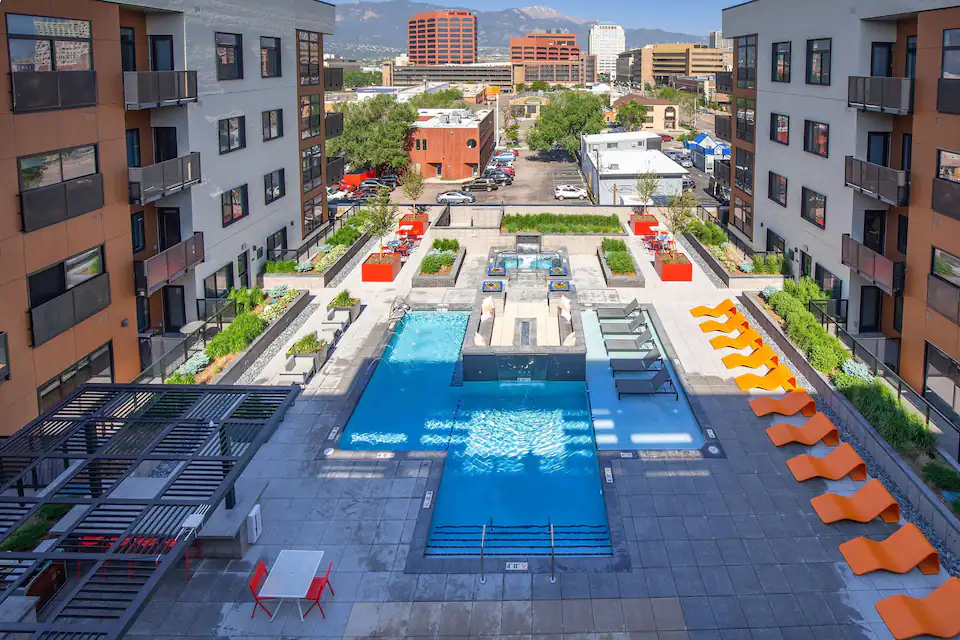Real estate development is the process of creating new buildings or improving existing ones to meet the needs of the community or the market. It involves a range of activities, from planning and design to financing, construction, and management.
Real estate development can take many forms, including residential, commercial, industrial, and mixed-use projects. The goal of real estate development is to create high-quality, functional, and sustainable buildings that meet the needs of the people who will use them, while also generating a return on investment for developers and investors.
The real estate development process typically begins with site selection, where developers identify suitable parcels of land for their projects. This involves conducting market research to understand the demand for different types of properties in a given area, as well as assessing the suitability of the site for development.
Once a site has been selected, developers begin the planning and design process. This involves working with architects, engineers, and other professionals to create detailed plans and specifications for the project. During this phase, developers must also obtain any necessary permits and approvals from local authorities.
With the plans in place, developers must secure financing for the project. This may involve working with banks, investors, or other sources of capital to obtain the necessary funds to purchase the land and construct the building.
Construction is the next step in the real estate development process. This involves hiring contractors, overseeing construction activities, and ensuring that the project is completed on time and within budget. Developers must also manage any issues that arise during construction, such as delays or unexpected costs.
Once construction is complete, developers must market and lease or sell the property. This involves working with brokers, real estate agents, or other professionals to attract tenants or buyers to the property. Developers must also manage the ongoing operation and maintenance of the property, which can involve tasks such as collecting rent, maintaining the building, and managing tenant relationships.
 Throughout the real estate development process, developers must also manage risks associated with the project. This includes financial risks, such as the possibility of cost overruns or market fluctuations, as well as legal and regulatory risks, such as zoning or environmental issues.
Throughout the real estate development process, developers must also manage risks associated with the project. This includes financial risks, such as the possibility of cost overruns or market fluctuations, as well as legal and regulatory risks, such as zoning or environmental issues.
- Meeting the needs of the community: Real estate development can help meet the needs of the community by creating new buildings and infrastructure that provide housing, commercial space, and other amenities.
- Generating economic growth: Real estate development can contribute to economic growth by creating jobs and generating tax revenue for local governments.
- Improving the quality of life: Real estate development can improve the quality of life for people by creating high-quality, sustainable buildings that are designed to meet the needs of the community.
- Creating opportunities for investors: Real estate development can be a profitable investment opportunity for developers and investors, offering the potential for high returns on investment.
- Contributing to sustainable development: Real estate development can be designed and constructed using sustainable building practices, such as using renewable materials, energy-efficient systems, and green technologies. This can help reduce the environmental impact of development and contribute to a more sustainable future.
- Enhancing the value of the surrounding area: Real estate development can enhance the value of the surrounding area by creating new infrastructure and amenities that attract businesses and residents to the area.
- Revitalizing communities: Real estate development can help revitalize communities that have experienced economic decline or disinvestment, creating new opportunities for growth and development.
- Promoting innovation: Real estate development can promote innovation by encouraging new and innovative building designs, materials, and technologies that can improve the quality of life for people and contribute to a more sustainable future.
In conclusion, real estate development offers many benefits, including meeting the needs of the community, generating economic growth, improving the quality of life, creating opportunities for investors, contributing to sustainable development, enhancing the value of the surrounding area, revitalizing communities, and promoting innovation. However, real estate development also involves significant risks and challenges, and requires careful planning, management, and execution to be successful.
By carefully managing the process and working with experienced professionals, developers can create high-quality buildings that meet the needs of the community and generate a strong return on investment.

